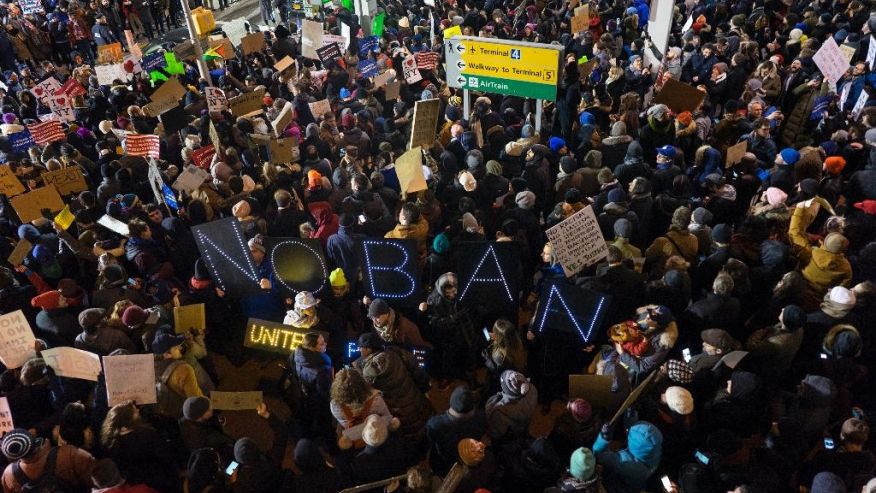White House Hints At Possibility Of Extending Travel Ban To Pakistan

NEW DELHI: White House chief of staff Reince Priebus hinted at the possibility of extending President Donald Trump’s controversial travel ban to other countries, including Pakistan. The ban, resulting from an executive order signed by Trump, currently suspends travel to the US for citizens of seven predominantly Muslims countries, namely -- Iran, Iraq, Libya, Somalia, Sudan, Syria and Yemen. Additionally, the order suspends refugee arrivals from all countries.
Speaking to a media channel, Priebus defending the ban saying it was “not a Muslim ban” and adding that “you can point to other countries that have similar problems like Pakistan and others - perhaps we need to take it further.” “But for now, immediate steps, pulling the Band-Aid off, is to do further vetting for people traveling in and out of those countries," the chief of staff said.
Priebus added that the seven countries that the ban applied to were chosen based on former President Barack Obama’s administration as countries where dangerous terrorism had taken root. The chief of staff added that Trump was merely following up on election promises, as restricting entry of immigrants to the US had been a key campaign point.
The chief of staff further said that only 109 people, out of 325,000 travelling, had been detained and "most of those people were moved out". "We've got a couple of dozen more that remain and I would suspect that as long as they're not awful people that they will move through before another half a day today," he said.
Although this was the first instance of the White House indicating that the ban could be extended to other countries, President Trump already signalled out Pakistan and Afghanistan a few days earlier. Speaking to a media network, Trump had indicated that both Pakistan and Afghanistan will be among the countries whose citizens will have to go through an “extreme vetting” process before entering the United States.
Meanwhile, the recent statements referring to Pakistan have received their share of attention in the South Asian country, with Pakistan Tehreek-i-Insaf (PTI) Chairman Imran Khan on Sunday saying that he hopes that the ban is in fact extended. "I want to tell all Pakistanis today, I pray that Trump bans Pakistani visas so that we can focus on fixing our country," Khan told a rally in Sahiwal. While expressing his support for those affected by the ban, Khan said that most educated Pakistanis want to leave the country because they think they can only acquire gainful employment if they have a "powerful source", adding that he believes that things in Pakistan can only improve if people work for progress (as quoted in Dawn News).
The ban, which Trump said was to make America safe from “radical Islamic terrorists” has courted huge controversy since its hurried implementation. Chaos broke out as refugees and citizens of the seven countries explicitly mentioned were all stranded at US airports, many of whom were indefinitely detained. A number of federal court orders, however, put a stay on the issue of deporting refugees and immigrants with valid visas and documents.
Human rights groups have called the ban illegal and unjust, and world leaders have largely condemned it. Angela Merkel, for instance, reportedly reminded Trump that the UN Convention mandates that all signatory countries accept refugees fleeing war and persecution. The tech industry in the US -- a large employer of immigrants -- has also largely spoken up against the ban. Sixteen state attorneys general have said the order is unconstitutional. Protests have erupted across the United States, with huge crowds gathering at airports to express dissent. Details on the latest developments can be found here.
Sixteen attorney generals issued a joint statement reaffirming that they would "use all of the tools of our offices to fight this unconstitutional order" and, until it was struck down, would "work to ensure that as few people as possible suffer from the chaotic situation that it has created".
The Department of Homeland Security has said it will continue to enforce the measures.



